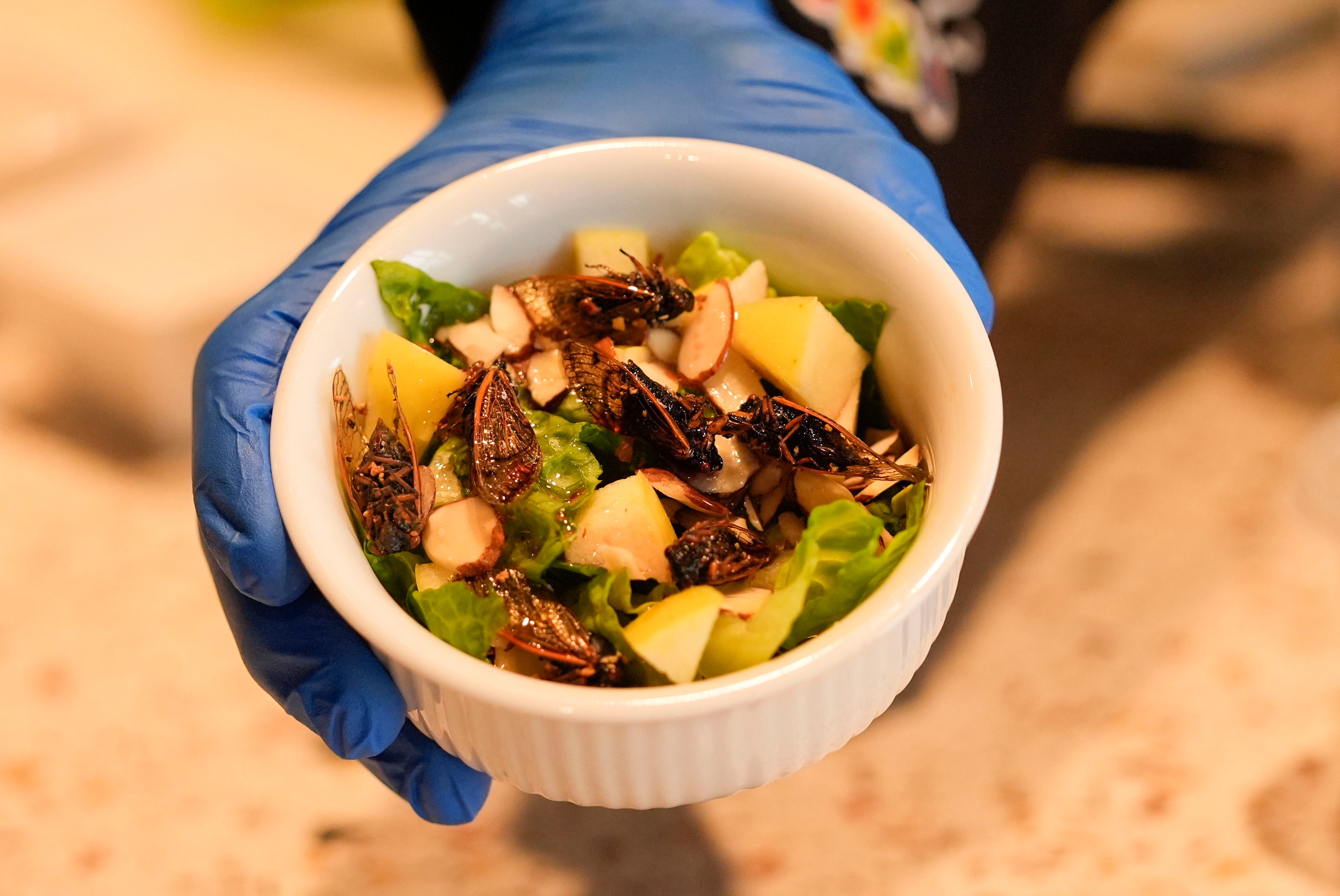Major supermarket report says we will be eating termites, crickets, locusts and grasshoppers by 2054
We will also turn to lab-grown meat

A mixture of different insects and burgers growns in labs could be meal staples by 2054, according to a study.
The next 30 years will see consumers turn increasingly to laboratory-grown meat cultured from animal tissues – with the potential to reduce emissions, land use and water consumption, researchers from University of York-based FixOurFood programme believe.
People will consume a wider range of insect proteins and preserves as part of their daily diet, with the nutritional quality of termites, crickets, locusts and grasshoppers seeing them utilised more in food products, the report, for the Co-op supermarket suggests.
Meanwhile, vegetable consumption will evolve towards embracing locally-sourced seasonal produce and traditional preservation methods such as pickling and fermenting.
Bob Doherty, director of FixOurFood and dean of the School for Business and Society at the University of York, said: “The last 30 years we have seen scientific leaps into more sustainable produce which were unimaginable to most back in 1994. From lab-grown meat to vertical farming, the future of food is set to revolutionise how we eat.

“By 2054, British people will have edible insects on their dinner plate, and we may see the crushing up of crickets quicker than wholegrains. As climate change continues to impact our planet, we’ll also see a shift towards locally grown produce, with avocados grown in Surrey becoming a reality. We may even see the introduction of 3D-printed food.
“As we navigate the challenges of climate change, we’ll need to embrace these innovations to ensure that we can feed a growing population sustainably.”
A survey for Co-op’s latest Responsible Retailing Report, which has polled almost 70,000 people since it began in 1994, found that 72% of consumers have become increasingly concerned about ethical and sustainable food, driven by climate change, animal welfare, plastic pollution and fair wages for global workers.
However, just over half of consumers (54%) now say they would be willing to pay more for ethical and sustainable products, down from 62% in 1994.
Some 61% of consumers now say they only buy the food they need, while other purchasing considerations include whether a product is British (42%) and if it comes in recyclable packaging (38%).
Some 88% say they now eat more fruit and vegetables, while 87% choose healthier options.
Cathryn Higgs, head of ethics, sustainability and policy at Co-op, said: “As a food industry we’ve made a lot of progress, but rightly shoppers are calling on us to do more, with honesty and integrity at the core of our decision making.
“At Co-op, we remain committed to providing our members and customers with responsibly sourced and innovative food options, and we’re proud to champion home-grown produce and source only 100% British fresh meat, poultry and dairy.
“We also have an ambitious climate plan to reduce absolute emissions from our value chain by 48%, and own operations by 66% by 2030, and as part of this we continue to ensure all our packaging is easy to recycle at home or through film collection points in selected Co-op stores.”
Join our commenting forum
Join thought-provoking conversations, follow other Independent readers and see their replies
Comments
Bookmark popover
Removed from bookmarks